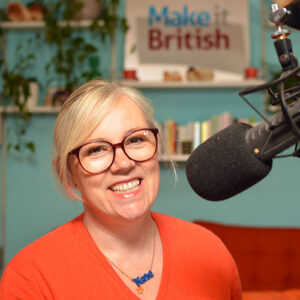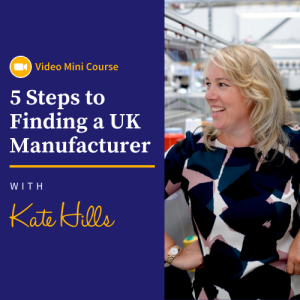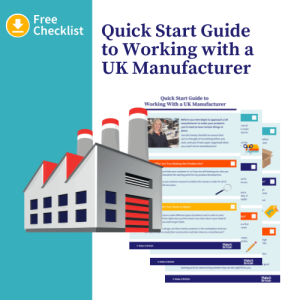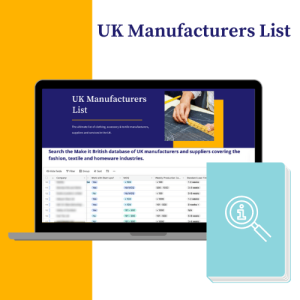Essential Skills That Brand Founders Need
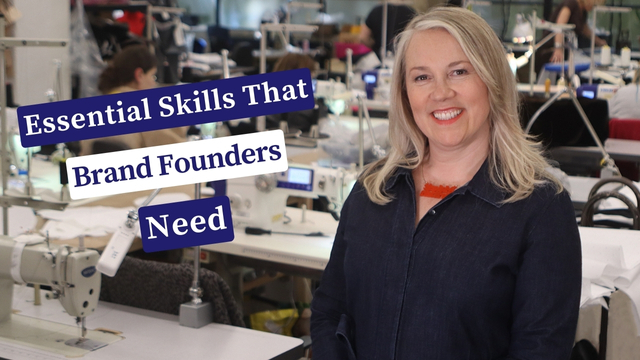
Do you need a design degree to be a successful brand founder?
After working with hundreds of brand founders over the last few years, these are the skills that you REALLY need in order to be successful.
Many of the most successful brand founders I’ve worked with had no formal training in design or product development. What they did have was experience, transferable life skills, and the drive to create a product that solves a problem that they had personally faced.
For instance, when my client Rosie realised that there was no dog car seat that her small dog could travel in comfortably, safely and stylishly, she set out to create one that solved the problem.
In the British Brand Accelerator I’ve mentored people from every background you can think of. Lawyers. Teachers. Civil servants. Healthcare professionals. Finance directors. Few of them had studied design. Yet all of them shared two things in common:
- They had already achieved a lot in their careers but wanted to do something more creative and fulfilling.
- They had spotted a gap in the market because they couldn’t find a product that met their own needs.
That was enough to give them the spark to start!
The transferable skills that matter more than a design degree
In my experience of coaching hundreds of UK-made brand founders, these are the essential skills that matter more than any design degree:
Problem Solving
Manufacturing and production is a rollercoaster, even for the most experienced of brand owners. Despite the best organisation in the world, there is always something that doesn’t quite go as planned.
That’s where the ability to problem-solve comes in.
Say your fabric gets held up because the mill got flooded (yes, I have known this to happen!), you need to be able to think on your feet and find an alternative solution. Maybe you give the factory something else to put in that production slot, or you have an alternative fabric as back-up already on standby.
Great Communication
You need to be able to get your point across clearly and concisely, whether you’re speaking to a factory manager, a fabric supplier or a potential stockist. Misunderstandings in manufacturing can be costly. One wrong spec sheet or a vague email could mean you end up with hundreds of products that aren’t fit for purpose.
I’ve seen this happen when brand founders assume that the manufacturer “just knows” what they mean. They don’t. You need to spell things out and never assume. Clear drawings, proper tech packs and concise follow-up emails can save you from a lot of expensive mistakes.
Good communication also builds trust. Factories and suppliers want to work with founders who are straightforward and easy to deal with. If you’re clear, respectful and responsive, you’ll quickly become the client they prioritise when slots are tight.
Staying Calm Under Pressure
Running a brand is rarely smooth sailing. Something will always crop up that throws your plans off course: a supplier goes quiet, labels arrive with a typo, or your launch date is suddenly at risk. How you handle those moments makes all the difference.
The most successful brand founders I’ve coached are the ones who don’t panic when things go wrong. Instead, they take a step back, assess the situation and deal with it methodically. Factories and suppliers respect that calm approach too. Nobody wants to work with a founder who shouts down the phone the minute something slips.
I remember one founder whose entire first production run was delayed because zips hadn’t cleared customs. Instead of spiralling, she used the extra time to focus on building her email list and lining up press coverage. When the stock finally arrived, she had an audience ready and waiting, and a sell-out launch.
Keeping your cool under pressure doesn’t just save your sanity. It also keeps doors open with suppliers, because they’ll remember how you behaved when the chips were down.
Building Relationships
Manufacturing is built on people. However good your product idea is, you won’t get far without strong relationships with the people who help you bring it to life. That means your factory, your suppliers, your pattern cutter, even the courier who picks up your parcels.
The brand founders I see succeed are the ones who treat these people as partners, not just service providers. A factory manager is far more likely to squeeze in your urgent order if you’ve taken the time to build rapport and show appreciation for their work. On the flip side, if you only ever chase, criticise or demand, don’t expect them to go the extra mile for you.
I’ve seen this play out countless times. One founder I worked with made a point of visiting her factory regularly, bringing biscuits for the team and asking about their families. When she hit a snag with a delivery just before Christmas, the factory rallied round to get her stock finished in time. That goodwill was earned through months of genuine relationship-building.
Collaboration goes beyond production too. Journalists, buyers, and influencers are more likely to support you if you’ve taken the time to connect with them properly. Relationships are currency in this business, and investing in them will always pay off.
Negotiating Fairly
Negotiation is part and parcel of running a brand. You’ll be discussing prices with suppliers, payment terms with factories, and wholesale margins with stockists. How you approach those conversations can set the tone for your entire business relationship.
Fair negotiation isn’t about squeezing every last penny out of a supplier. If you force a factory to cut their price to the bone, you may win in the short term but lose in the long term. Corners get cut, quality suffers, and your manufacturer will prioritise other clients.
Instead, the strongest brand founders aim for deals where both sides win. Be clear about your budget, ask for transparency in costs, and be open to compromise. If a factory can’t meet your target price, perhaps you adjust the design or order quantity rather than demanding the impossible.
Instead of thinking of negotiation as a battle, approach it as a partnership. If you try to squeeze a supplier too hard, the result is usually the same — corners get cut, quality slips, or your order gets pushed to the back of the queue.
When you negotiate fairly, you set the foundation for a long term relationship built on trust. A factory that feels respected and valued will be far more likely to flag issues early, suggest better solutions, and even prioritise your orders when capacity is tight. That kind of goodwill is worth far more than shaving a few pounds off your cost price.
Negotiation done well is about building sustainable partnerships that help your brand grow.
Checklist: Are you ready to be a brand founder?
- You have an idea for a product that solves a real problem
- You’ve achieved plenty in your career but feel ready for something more creative and fulfilling
- You might not have a design degree, but you have many of the skills needed to be a successful brand founder
- You are ready to learn, adapt and ask for help
- You want to be taken seriously by manufacturers and build trusted relationships
